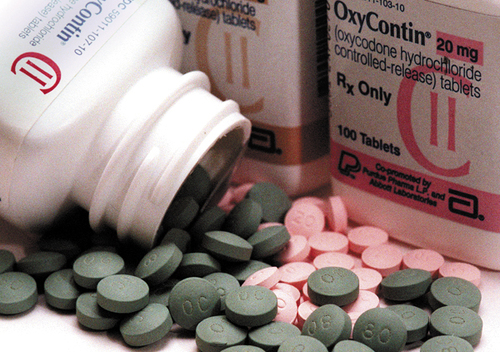
The Four Defense Mechanisms of the Chemically Dependent
January 20, 2011
Reflection on the Third Tradition
January 26, 2011Oxycontin is one of the most highly abused prescription drugs in the Pennsylvania. After going through FDA approval, the drug was first introduced into the market back in 1995. The use of oxycontin is intended for terminally ill patients, such as those suffering from cancer and other types of chronic diseases. The drug is considered to be a powerful pain killer that is widely used in the world of clinical medicine. However, the strong high that oxycontin has the ability to invoke makes it both physically and mentally addictive to those who misuse and abuse the drug. This is why oxycontin addiction in Pennsylvania has escalated dramatically since its initial inception in the 1990’s.
Our admissions coordinators are available 24/7 to answer any questions you may have as you consider whether treatment at Clearbrook Treatment Center is right for you or your loved one.
Why is Treatment Necessary?
If oxycontin is a prescription drug, why do individuals need treatment to stop consumption? Those who are addicted to oxycontin need to seek treatment for their dependence due to the harmful effects and serious consequences that can result from continued abuse. There are both short-term and long-term effects caused by oxycontin drug abuse. The following are a few examples of each:
* Respiratory problems
* Nausea
* Dizziness
* Headaches
* Weakness
* Kidney disease
* Cardiovascular damage
* Liver disease
* Arthritis
Unfortunately, becoming addicted to oxycontin can happen to just about anyone and similar to other types of drug addiction, withdrawal can prove to be extremely difficult. Some common withdrawal symptoms associated with oxycontin addiction include insomnia, vomiting, muscle and bone pain, restlessness and tremors. Those who suddenly stop usage also put themselves in danger of experiencing seizures and convulsions, which can result in untimely death. In addition to the physical consequences, oxycontin abusers can also experience deteriorating relationships, loss of employment, financial difficulties and legal issues as a result of their addiction.
Oxycontin Rehab Options in Pennsylvania
When it comes to oxycontin rehab in Pennsylvania, treatment usually begins with a medically supervised Pennsylvania drug detox program. During this process, physicians in the oxycontin rehab center in Pennsylvania aim to reduce and sometimes eradicate the feelings and symptoms associated with oxycontin withdrawal. Although eliminating the symptoms all together is rare due to the nature of oxycontin addiction, detoxification helps to make them more manageable.
Detox is typically followed by residential treatment programs. Once addicts are medically stable, residential addiction treatment provides them with support as they continue to fight their addiction and cravings with oxycontin. Some of the treatments included in this type of oxycontin rehab program include individual, group and family therapy sessions. Counseling helps addicts to uncover and resolve their emotional dependence on oxycontin.
Get a Free Insurance Verification Today!
"*" indicates required fields
Which Treatment is Right for You?
Choosing the right treatment for oxycontin addiction is dependent on the severity of illness, which tends to vary on a case-by-case basis. Residential treatment is typically three weeks long but can often be longer if necessary. There are also several types of oxycontin rehabilitation centers where addicts can receive treatment; however, the choice should be made on individual needs. The following are some examples:
* Free-standing residential treatment center
* Hospital based oxycontin rehab facility in Pennsylvania
* Long-term residential treatment center
* Extended care programs
* Outpatient addiction treatment
* Partial hospital/day treatment programs
* Therapeutic treatment centers
* Teen programs for oxycontin rehab addiction
Thank you to www.treatment4addiction.com for information.
ARE YOU OR A LOVED ONE STRUGGLING?
CALL CLEARBROOK TREATMENT CENTERS NOW AT (570) 536-9621.






